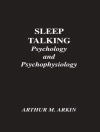This complete guide to LEGO® Therapy contains everything you need to know in order to set up and run a LEGO® Club for children with autism spectrum disorders or related social communication difficulties and anxiety conditions.
By providing a joint interest and goal, LEGO® building can become a medium for social development such as sharing, turn-taking, making eye-contact, and following social rules. This book outlines the theory and research base of the approach and gives advice on all practical considerations including space, the physical layout of the room and choosing and maintaining materials, as well as strategies for managing behaviour, further skill development, and how to assess progress.
Written by the pioneer of the approach alongside those who helped form it through their research and evaluation, this evidence-based manual is essential reading for professionals working with autism who are interested in running a LEGO® Club or learning more about the therapy.
Table of Content
1. Introduction. 1.1. The Development of LEGO® Therapy. 1.2. Group Therapy: The LEGO® Club. 2. Implementing LEGO® Therapy. 2.1. General Principles. 2.1.1. What is LEGO® Therapy? 2.1.2. Who is LEGO® Therapy for? 2.1.3. What qualifications do you need to run LEGO® Therapy groups? 2.1.4. The main principles of LEGO® Therapy. 3. LEGO® therapy levels of intervention. 3.1. Level One – Individual Therapy. 3.1.1. Pivotal Skills. 3.1.2. Therapeutic Activities for Building Pivotal Skills. 3.1.3. Building Skills. 3.2. Level Two – Collaborative Building with One Peer. 3.2.1. Collaborative Set Building. 3.2.2. Collaborative Freestyle. 3.3. Level Three – Collaborative Building with Two Peers. 3.3.1. Set Building. 3.3.2. Freestyle Building. 3.4. Level Four – Social Communication. 3.4.1. Individual Therapy. 3.4.2. ‘Check-in’. 4. Structure of a LEGO® Therapy Group Session. 4.1. Initial greeting. 4.2. Group review and discussion. 4.3. Role and task assignment. 4.4. Group-based semi-structured activities. 4.5. Less structured, creative time. 4.6. Clean-up time. 4.7. Farewell and parent review. 4.8. Planning and evaluating the sessions. 5. Effective and Ineffective Procedures in LEGO® Therapy. 6. Behavior Management and Rewards. 6.1. LEGO® Club Rules. 6.2. LEGO® Points. 6.3. Use of Time-Out. 6.4. “Rules of Cool”. 6.5. The LEGO® Club Level System. 6.6. LEGO® Levels. 6.6.1. LEGO Helper. 6.6.2. LEGO Builder. 6.6.3. LEGO Creator. 6.6.4. LEGO Master. 6.6.5. LEGO Genius. 7. Setting up your own LEGO® therapy groups. 7.1. The Permanent LEGO® Room. 7.1.1. Physical Layout. 7.1.2. Establishing the Structure. 7.2. Temporary Set-Up. 7.3. Portable Materials. 8. Specific Materials and Arrangements. 8.1. Choosing Materials: sets with instructions. 8.2. Choosing Materials: freestyle LEGO®. 8.3. Maintaining Materials. 9. Assessment Procedures. 9.1. Initial Assessment. 9.1.1. Initial Interview. 9.1.1.1. Building a small set. 9.1.1.2. Free-style building. 9.2. Initial Observation in Natural Setting.9.3. Follow-Up Assessments. 9.4. Termination/Graduation. 10. Conclusion. References. Appendix A. LEGO® Therapy Intake Assessment. Appendix B. Structured Observation. Appendix C. Lego Therapy Log and Session Plan and Evaluation.
About the author
GW Krauss completed his graduate training at the University of Alaska, Fairbanks and the Widener University Institute for Graduate Clinical Psychology. Dr Krauss has provided play and group therapy for children and adults with social and neurodevelopmental deficits since 1995. He has worked on the development and implementation LEGO® Therapy with Dr Le Goff for the past six years. Dr Krauss integrates the approach into the social learning programming for students with autism and related conditions at the Y.A.L.E. School and Clinic in Cherry Hill, New Jersey, USA where he is a licensed clinical neuropsychologist.












